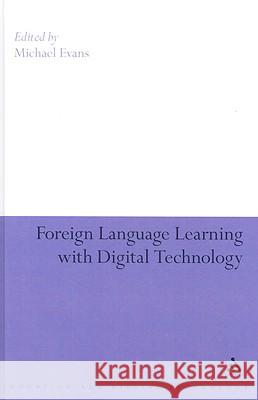Foreign-Language Learning with Digital Technology » książka
Foreign-Language Learning with Digital Technology
ISBN-13: 9781847060419 / Angielski / Twarda / 2009 / 224 str.
In the last decade educational policies across the world have recognised ICT as a key vehicle for shaping foreign language learning at school and university. The focus of this book aims to fill a gap in understanding the role of ICT in foreign language learning.There is an apparent paradox in the fact that while digital technology is endlessly innovating and improving itself as a tool to support teaching and learning, the cognitive process of language learning itself remains perennially the same. However, it is also true that the medium has created new learning opportunities which were not possible before and therefore introduces new elements into the cognitive process of foreign language learning. The book's overall aim of examining foreign language learning primarily from the user's perspective (both teacher and learner) is broken down into 2 underlying questions: How does digital technology support existing foreign language learning needs and processes? What new learning experiences does it entail for the learner?More specifically, this book aims to meet the following objectives: To situate new insights into the value of digital technology for FL learning within the context of evidence from prior research and of educational policy-making; To present and examine key pedagogical uses of digital technology in relation to effective foreign language learning by pupils; To provide an in-depth description of the use of a range of digital media; To combine practical ideas for teaching and learning with critical analysis of evidence; And, to bring together analysis of technology-focused language learning across different sectors (secondary, university, TEFL) and in three national anglophone contexts (England, Australia and USA).











